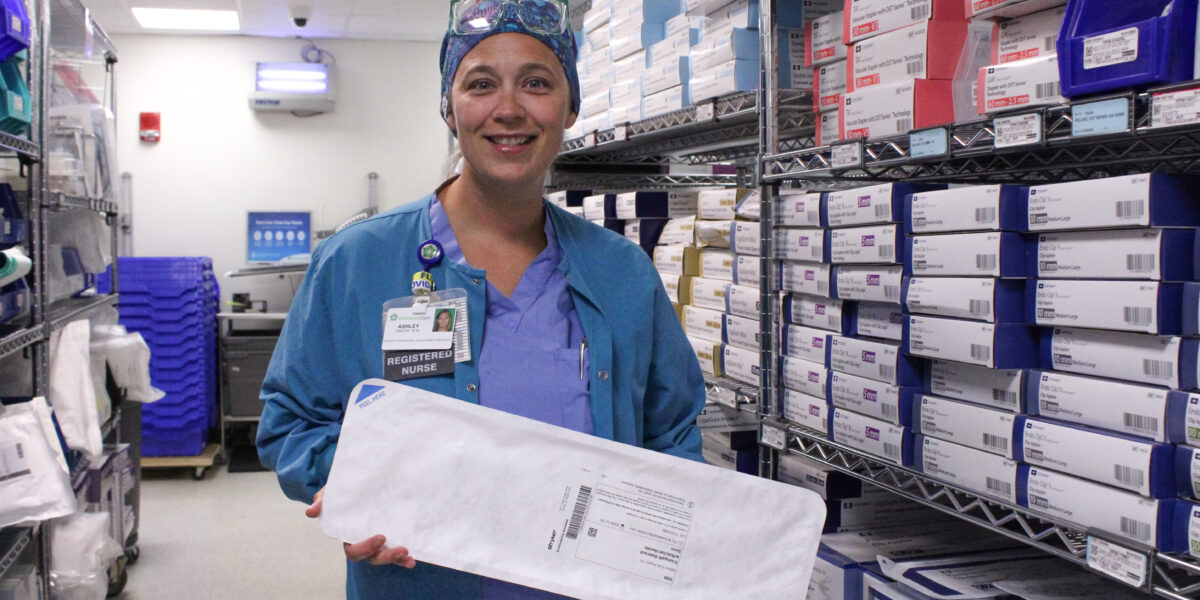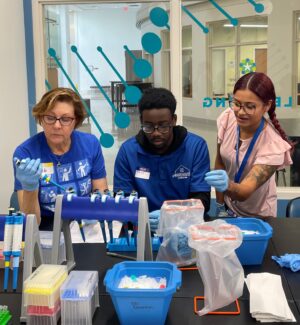For reducing environmental impact of medical waste through innovative health care practices, ChristianaCare has been recognized with an Environmental Excellence Gold Award from the medical technology company Stryker.
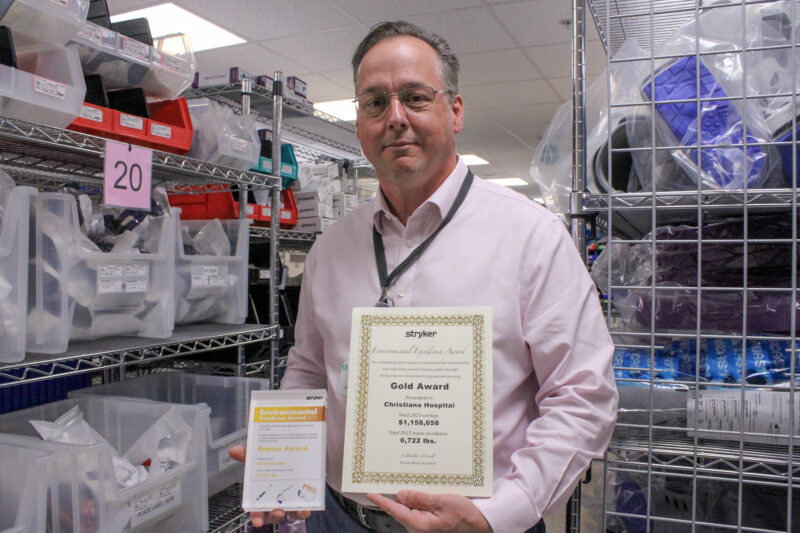
The award spotlights ChristianaCare for outstanding achievements in sustainability in 2023 based on key metrics including waste diversion, collections growth and buyback percentage.
In 2023, ChristianaCare’s sustainability initiatives resulted in the diversion of 6,722 pounds of medical waste from landfills and generated savings amounting to $1,158,658.
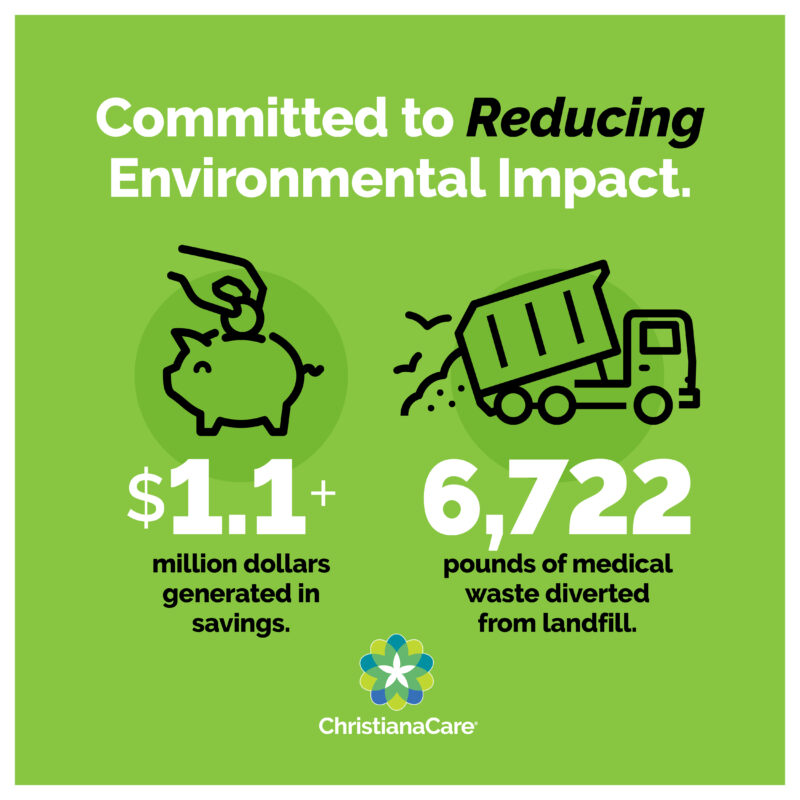
‘Reprocessing’ means second life for medical equipment
A step in environmental stewardship is “reprocessing.” This allows the safe reuse of medical equipment. It includes its cleaning, disinfection, sterilization and related procedures, as well as testing and restoring the technical and functional safety of the used device.
The most common reprocessed items systemwide include:
- Compression boot sleeves
- Disposable pulse oximeters
- ECG leads
- Disposable fall alarms.
Common items reprocessed from the operating rooms and Heart & Vascular Interventional Services:
- Laparoscopic vessel sealers and dissectors
- Suture passers
- Tourniquets
- Cables.
ChristianaCare’s dedication to sustainability spans beyond waste reduction. Earlier this year, the health system launched a medical donation program. It is spearheaded by Deanna Benner, MSN, APRN, WHNP, women’s health nurse practitioner and co-chair of ChristianaCare’s Environmental Sustainability Caregiver Committee; nursing professional development specialist Ashley Oncay, RN; and operating room nurse Pamela Ramagano, RN.
Through the program ChristianaCare already has donated over 680 pounds of medical supplies valued at nearly $50,000. This initiative repurposes expired supplies as educational resources, further enhancing their lifespan.
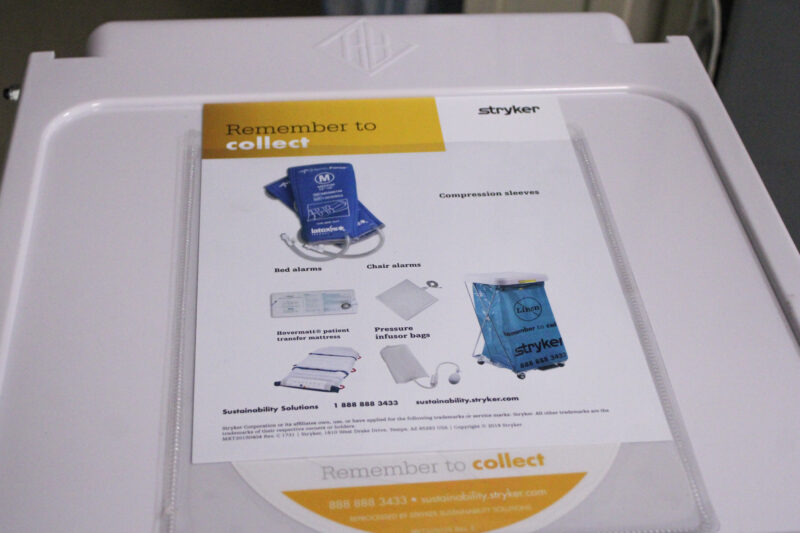
“One surgery produces the same amount of waste as a family of four does in one week,” Oncay said. “Through our program, we aim to minimize our environmental footprint while continuing to provide excellent care to our patients.”
ChristianaCare’s commitment to healthy environments and healthy people
In 2022, ChristianaCare joined the White House Climate Pledge to use 100% renewable energy by 2025, reduce greenhouse gas emissions by 50% by 2030 and reach zero net emissions by 2050. Looking forward, ChristianaCare remains committed to advancing its sustainability initiatives, supported by volunteers and staff.
As one of the nation’s leading health systems, ChristianaCare is taking a bold, comprehensive approach to environmental stewardship.
ChristianaCare reduced its carbon footprint by 37% in 2023 by purchasing emission-free electricity.
ChristianaCare joined the White House Climate Pledge to use 100% renewable energy by 2025, reduce greenhouse gas emissions by 50% by 2030 and achieve zero net emissions by 2050.
ChristianaCare has created an Environmental, Social and Governance structure to help advance a five-year strategic plan that delivers health equity and environmental stewardship.
Nearly 150 staff members have become Eco-Champions, an opportunity to be environmental change-leaders in the workplace.
In 2023, ChristianaCare’s successful environmental stewardship included:
- Reducing our carbon footprint by 37% by purchasing emission-free electricity.
- Recycling 96,663 pounds of paper, which preserved 11,485 trees.
- Reducing air pollution by releasing an estimated 33,000 fewer pounds of nitrogen oxides and sulfur oxides through the use of a cogeneration energy plant on the Newark campus.
- Donating 34,095 pounds of unused food to the Sunday Breakfast Mission in Wilmington, Delaware.
- Donating 1,575 pounds of unused medical equipment to Project C.U.R.E., ChristianaCare’s Virtual Education and Simulation Training Center and Delaware Technical Community College.
Click here for more on ChristianaCare’s commitments to sustainability and its community.
